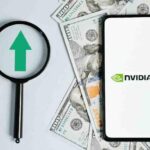The stock market entered the last day of September’s trading session, exhibiting notable bearishness. However, Apple (NASDAQ: AAPL) is standing out, outperforming the general technology sector.
AAPL’s share price was up 1.9% by press time, trading at $232. The stock has extended its recent momentum, surging almost 4% over the past month.
The general market correction comes as the bullish momentum from the Federal Reserve’s interest rate cut appears to be cooling off. At the same time, U.S. equities seem to be moving in the shadows of their Chinese counterparts, which have rallied to new records thanks to government stimulus packages.
Some big names trading in Apple’s shadow include semiconductor giant Nvidia (NASDAQ: NVDA), down 0.6%; Microsoft (NASDAQ: MSFT), down 0.16%; and Broadcom (NASDAQ: AVGO), down 0.3%%. After a bright run in recent days, Tesla (NASDAQ: TSLA) is also battling bearishness, dropping 0.5%.
Why APPL stock is surging
Apple shares appear to be reacting positively to news that lead times for the company’s latest smartphone series, the iPhone 16, are stabilizing, indicating that supply is catching up with demand.
In an investor note on September 30, JPMorgan (NYSE: JPM) analysts, led by Samik Chatterjee, indicated that iPhone 16 base model shipping times in the U.S. stood at 10 days in the third week, compared to 17 days in week two. For the iPhone 16 Pro and Pro Max, the lead times remained at 23 and 29 days, respectively, from week to week.
“In Week 3 of our Apple Product Availability Tracker, delivery lead times are showing trends which, if continued, will explain the weaker lead times for the Pro models in the initial weeks as only an aberration led by a combination of better supply mix as well as delay in pick up in momentum from higher-end consumers awaiting the release of Apple Intelligence,” Chatterjee said.
Elsewhere, Morgan Stanley’s (NYSE: MS) analysis noted that as of September 17, lead times for the iPhone 16 Pro and Pro Max models also showed stability. The bank indicated that iPhone 16 lead times remain shorter than the last three iPhone cycles.
“iPhone 16 lead times as of September 27 are still tracking lower than the past 3 iPhone cycles, but lead times for 16 Pro/Pro Max models are now extending/stabilizing across all regions that we track, an unexpectedly positive development,” Morgan Stanley’s Erik Woodring said.
The stabilizing figures could be viewed as a positive indicator, especially considering that Wall Street was initially alarmed by disappointing pre-order figures, particularly during the first days of the model’s launch.
At the same time, Woodring noted that while supply for the series has improved with signs of strong demand, caution is still warranted, as it might be too early to draw conclusions.
Wall Street AAPL outlook
Despite the cautious outlook surrounding the impact of iPhone 16 numbers, a consensus of 34 Wall Street analysts suggests that AAPL remains a ‘buy. ‘ The experts have set an average price target of $248 over the next 12 months, representing a 6.7% upside. The experts have a high forecast of $300, while the lowest estimate is $186.
Among the analysts is Citi (NYSE: C), which stated that Apple will likely trade at $255 next year. Notably, the bank named the company the top artificial intelligence (AI) stock pick heading into 2025.
Citi’s analysts highlighted that the company’s AI features, announced alongside the iPhone 16 series, look promising in the long term, noting that innovation will likely drive more upgrades.
In summary, while the broader stock market faces bearish trends, Apple continues to outperform, driven by a stabilizing iPhone 16 supply and positive momentum. However, considering the general market is trading lower, AAPL’s share price will need stronger fundamentals to sustain its momentum.









